- Home
- Richard Laymon
The Cellar Page 10
The Cellar Read online
Page 10
The Beast of Kampala was dead.
And so was Jud’s erection.
The guards—if they’d caught him. But they hadn’t. They hadn’t even come close. No closer than he’d allowed for, at least. Still, if they’d caught him…
There!
Just this side of the fence.
He held the scope steady. Though something—probably a bush—blocked portions of the heat image, he could see that the crouching figure had the basic shape of a human.
It lay down flat. It shoved something forward, apparently through a gap beneath the fence. Then it squirmed under the fence, itself. On the other side, it picked up the object and stood upright on two legs. It looked both ways, turning.
In profile, it had breasts.
It ran to the back of the house, climbed stairs, and disappeared into a porch.
A few seconds passed. Then Jud heard a quick, faint crash of breaking glass.
3.
When Jud reached the fence, gasping and hurting from his rush down the dark hillside, he didn’t take time to find the burrow. He tossed his flashlight through the bars of the fence, leaped up, and grasped the high crossbar with both hands. He flung himself upward. Stiff-armed, he braced himself above the bar. A muffled scream came from the house. His weight shifted forward too much, and he felt the point of a spike prod his belly. He leaned back, and kicked up his left leg. His foot found the bar. He shoved hard upward, letting go. His right leg cleared the spikes. He fell for a long time. When he hit the ground, he tumbled, rolled to his feet, and retrieved the flashlight. Then he sprinted to the back of the house.
As he rushed up the porch steps, he unholstered his Colt .45 automatic. He wondered briefly if he should change clips—exchange the standard seven-shot magazine for the twenty-shot oversize he kept in his parka. Hell, if he couldn’t get it with seven…it?
Inside the porch, the house door stood open. One of its glass panes was broken.
He entered. He flicked on his flashlight, swung its beam. The kitchen. He ran through a doorway into a narrow hall. Ahead, he saw the stuffedmonkey umbrella holder, and the front door. He shined his light over his left shoulder. It lit the staircase bannister. He rushed to the foot of the stairs, checked to the left and right, then swung his beam up the stairway.
Halfway up, it lit the red of a gasoline can lying on its side. He climbed to the can. Its caps were still in place. A three-foot length of rope had been passed through its handle and knotted, forming a sling. Liquid sloshed inside the can as he set it upright. He holstered his pistol and unscrewed one of the caps. He dropped it into his shirt pocket and sniffed the opening. Gasoline, all right. As he reached into his pocket for the cap, he heard breathing above him. Then a sound of parched laughter.
His beam climbed the stairs, lit a bare leg running blood, a hip, a mauled breast, a face. Hair hung down the face. Blood trickled from its chin. A flap of forehead skin hung down, hiding one eye.
More laughter came, as if trickling from her open mouth along with blood.
“Mary?” Jud called quietly up the stairs. “Mrs. Ziegler?”
She came forward in a strange, gliding way, her arms swinging loosely, her legs barely seeming to move.
Jud lowered his flashlight enough to see that her feet were two inches off the floor.
“Oh God,” he muttered, and started to reach for his pistol.
The body flew down at him.
He dropped to a crouch, bracing himself. The body struck him, rolled over his back with soft liquid sounds, and fell away. It thudded, hitting the stairs below him.
Then something else hit his back.
He shot his elbow into soft flesh and heard an explosion of breath. Gagging at the sour stench, he drove his elbow backward once more and twisted his body. Something sharp raked his shoulder, tearing his parka and skin as the heavy weight left his back. In pain, he dropped his automatic.
He clawed at the stairs, trying to find it. He found the gas can instead. He grabbed it. From below came grunting, snarling sounds.
Swinging the can, he splattered gasoline into the darkness. A pale shape appeared, hunched and climbing. He heard gas spatter it. Its arms flailed, and it shrieked. It knocked the can from Jud’s hands. He backed up the stairs, reaching into his shirt pocket. Behind the cigar box was a book of matches.
Claws tore his thigh.
He ripped a match free, still climbing backward. He scratched it across the abrasive strip and saw a blue splutter.
The match didn’t light.
But the thing was in midair, vaulting the bannister.
It grunted, hitting the floor far below. Then it scampered away toward the kitchen.
Jud searched the stairs until he found his flashlight and gun. Then he sat down, somewhere above the ravaged body of Mary Ziegler, and listened to the house.
CHAPTER TEN
Roy ached. Especially his shoulders and back. He felt as if he’d been driving forever. Only seven hours, though. He shouldn’t feel this bad, not after only seven hours.
He reached into the bag beside him and felt the heat of the Big Macs. He started to pick one up. Then he set it down again. He could wait. He’d be stopping for the night, soon. That would be the time to eat.
As he drove across the Golden Gate, he glanced to the right at Alcatraz. Too dark. He couldn’t see much except the signal light. Just as well. What did he want to see a fucking prison for, anyway?
It’s not a prison, he reminded himself.
Sure it is. Once a prison, always a prison. It could never be anything else.
If he stayed on 101 another ten minutes, he’d be able to see San Quentin. Shit, as if he hadn’t seen enough of that scumhole.
He didn’t want to think about it.
He went ahead and took out a Big Mac. He unwrapped it. He ate slowly, watching the freeway signs. As he swallowed the last bite, he flicked on the turn signal and steered the Pontiac Grand Prix up the Mill Valley exit.
Smooth. He liked the way it handled. Bob Mars Bar had good taste in cars.
Mill Valley hadn’t changed much. It still had the feel of a small, country town. The Tamalpias Theater marquee was dark. The old bus depot looked the same as always. He wondered if it still had all those paperbacks. Over to the left, the old buildings had been replaced by a huge, wooden structure. The place was changing, but slowly.
A big dog, part Lab, wandered into the intersection. Roy stepped on the gas and swerved to hit it, but the damn thing leaped out of range.
At the end of town, he turned onto a road to Mount Tamalpais, Muir Woods, and Stinson Beach. It meandered into the wooded hills. For a while, he passed scattered, dark houses. Then they were gone. He drove deeper into the woods, sometimes slowing almost to a stop as he took the tight curves.
When he came to a dirt turn-out, he pulled onto it and stopped. He shut off the headlights. Darkness wrapped the car. The dome light came on when he opened the door. He opened the back door and pulled a red Kelty backpack off the seat. After taking a flashlight from one of its side pockets, he shouldered the pack. He shut the car doors and stepped to the edge of the woods.
The ground sloped gradually upward. Bushes caught at his jeans as he climbed. Soon after leaving the road, he tripped over a low strand of barbed wire. A barb punctured his pants, scratching his shin. He jerked his pants leg free and continued upward.
At the top of the slope, he searched through the evergreens. They seemed closely packed. He was about to give up his search when the beam of his flashlight swept through a space that seemed fairly open. He stepped toward it and grinned.
The clearing, about twenty feet around, had a good flat area for his sleeping bag. A circle of rocks remained where someone else had made a campfire. Inside the circle were half a dozen charred cans. Kneeling, Roy touched one of them. Cold.
He scanned the area with his flashlight. All around the clearing, the forest seemed dark and silent.
This would do fine.
He lower
ed the backpack and opened it. On top was a plastic ground cloth. He spread it out. Then he took out a blue stuff bag, slipped the drawstring loose, and pulled out Bob’s mummy bag. He put it on top of the ground cloth.
Should’ve brought one of those rubber pads, he thought. If only he’d thought of it.
He wandered into the trees, gathering firewood. He picked up handsful of kindling, and brought them to the circle of rocks. Then he gathered armloads of dead limbs until he had formed a high pile. He tossed the burned cans into the trees.
With toilet paper from the pack, he started the fire. He fed it twigs. It grew, crackling and spitting. Its flames warmed his hands and cast fluttering light through the clearing. He added larger twigs. As the wood caught, he added more.
“Now, there’s a healthy fire,” he muttered.
Three good fires in one day. He was getting a lot of practice.
He stood over the fire, watching its flames leap and curl, feeling its heat on the front of his body. Then he stepped back, out of its heat. He picked up the flashlight.
Once in a while, as he worked his way back through the thick woods, he looked over his shoulder. He could see the fire for a long time, its brightness shimmering on leaves over the clearing. By the time he reached the slope overlooking his car, no trace of the fire was visible.
He climbed down slowly, carefully, to the car. From the front seat, he took the sack from McDonald’s. Then he stepped back to the trunk. He unlocked it. The lid swung up.
Joni squinted when the light beam hit her eyes. She was lying on her side, covered by a plaid comforter.
“Hungry?” Roy asked.
“No,” she said in a pouty voice.
The other times he’d opened the trunk, once every hour after leaving Santa Monica, she’d neither spoken nor moved. In fact, she hadn’t said a word since last night in the bathroom.
“So, you’re not crackers after all.” He pulled the comforter. Joni tried to hold onto it, but couldn’t. It jerked out of her hands.
She curled herself more tightly.
“Climb out of there,” Roy said.
“No.”
“Do it, or I’ll hurt you.”
“No.”
He reached under her pleated skirt and pinched her thigh. She started to cry. “What’d I tell you? Now, get out of there.”
On hands and knees, she climbed over the edge of the trunk, and lowered herself to the ground.
Roy shut the trunk. He took the girl’s hand. “We’re gonna have a nice campout,” he said.
He climbed the slope, pulling Joni behind him. From her struggles and cries, he knew the undergrowth was punishing her bare legs. “Do you want me to carry you?” he asked.
“No.”
“I’ll carry you piggyback, and the bushes won’t hurt.”
“I don’t want you to. You’re bad.”
“I’m not bad.”
“Yes you are. I know what you did.”
“I didn’t do anything.”
“You…”
“What?”
“You…” And suddenly she was making a loud, grating, “Whaaaaa!” like a baby.
Roy muttered, “Shit.”
Noisy sobs sometimes interrupted the droning wail, but it would only start again. There was no sign of a let-up. Not until Roy backhanded her cheek. That stopped the bawling. Only stifled sobs remained.
“Sit down,” Roy ordered when they reached the campsite.
Joni dropped to the mummy bag and hugged her knees to her chest. She rocked back and forth on her rump, sniffing.
Roy broke sticks across his knees and built up the fire. When it was high and snapping, he sat down beside Joni. “This is pretty nice, huh?”
“No.”
“Have you ever been camping before?”
She shook her head.
“Know what I’ve got in here?” He lifted the white McDonald’s sack toward her face. She turned away quickly, but not before Roy saw the craving in her eyes. He sniffed the sack. The aroma of french fries was overwhelming. He reached in, touched the fries, and pulled one out.
“Look what I’ve got here,” he said.
He held it high, wiggling it like a pale worm. “It’s all yours. Open up.”
She pressed her lips tight and shook her head.
“Suit yourself.” Roy tipped back his head, opened his mouth wide, and dropped it in. It tasted very salty.
He took a can of beer from the pack. The can was dry and warm. He remembered how cold the cans had felt when he took them out of Karen’s refrigerator, how they’d left his hands wet. Well, warm beer was better than no beer. When he opened the can, beer sprayed Joni. She flinched, but didn’t bother to dry her face. Roy drank, washing the saltiness out of his mouth.
“Have a french fry,” he said, and offered her another one. “No? Okay.” He ate it. He took the entire bag of fries out of the larger sack. “There’s a Big Mac in here. It’s for you.” He chewed the fries, and washed them down. “I’m not gonna eat it. It’s yours.”
“I don’t want it.”
“Sure you do.”
“I don’t.”
“I bought it for you. You’re going to eat it.”
“You’re not my father.”
Dangerous territory. He didn’t want her bawling again. “Suit yourself. It’s yours, if you want it.”
“Well, I don’t. You probably poisoned it.”
“I didn’t poison nothing.” He ate more fries, drank more beer. He finished the fries and the beer at the same time. He tossed the oily bag into the fire, and watched the flames take it. Then he got himself another beer. This time he shook the can and aimed it toward Joni, intentionally shooting the spray into her face. She bit her lower lip. Beer dripped from her nose and chin. Roy laughed. “You should see yourself.”
He took the remaining Big Mac out of the sack and unwrapped it. “Want it?”
“No.”
He raised it. He opened his mouth wide. Joni’s eyes flashed toward it, then away. “You do want it.”
She shook her head.
“Yes you do. Here.” He held it toward her face. She tightened her lips. “Open wide.”
Again, she shook her head.
Roy brushed the burger against her closed mouth, leaving a wet trail of juice and dressing. Then he lowered it and waited to see her tongue sneak out.
Her mouth stayed shut.
“Come on, open up.” Again, he rubbed the burger on her closed mouth. “Do what I say.”
“Mmmm-mmm.”
Roy put down his beer can. He got to his knees.
“Eat, Joni.”
She shook her head.
With his left hand, Roy pinched her nostrils shut and pushed her backward. He held her down tightly against the sleeping bag. For a long time, she kept her mouth shut. Finally, with a gasp, she opened up. Roy stuffed in the hamburger: twisting it, breaking it, mashing it into her mouth and chin and nose. When she started to choke, he let go. He flung the remains of the hamburger toward the trees.
Joni sat up, coughing. Her fingers scooped wads of beef and bun out of her mouth.
“Don’t get crap on the sleeping bag,” Roy warned. He shoved her forward.
On hands and knees, head close to the fire, she coughed and spit.
Roy watched the rear of her short, pleated skirt, and remembered dressing her that morning. He’d chosen a fresh white blouse, and green skirt. Joni, on the bed, had neither struggled nor cooperated. It had been like dressing a doll. Only different. This doll had real parts, and he’d enjoyed the feel of them. He hadn’t put underwear on her. He liked the idea of nakedness under the skirt.
The choking had stopped, but Joni stayed there on her hands and knees, crying.
Roy patted the back of her leg. His touch made her go rigid. He slid his hand up and down, enjoying the curve of the leg and the cool smoothness of the skin. He moved his hand higher. She turned and knocked it away.
Grabbing her arm, Roy pulled her
to him. Her mouth was dripping. He wiped it dry with his handkerchief, and threw the handkerchief into the fire.
She hit at his hands as he unbuttoned her blouse. He ignored it. Then she hit his nose. That hurt. He grabbed her hair and twisted it tightly so the pain made her gasp. He kept hold of the hair. She didn’t strike him again. When the blouse was off, he let her go. She hugged herself, shivering, while he folded the blouse and set it inside the pack.
“Cold?”
She said nothing.
Roy crawled behind her. He stroked her shoulders and back. He unbuttoned her skirt and lowered its zipper.
“Stand up.”
She shook her head.
Roy pinched her back. “Stand up.”
She did. Roy pulled the skirt down.
“Keep standing.”
“I’m cold,” she murmured.
“Stand closer to the fire.”
She seemed reluctant to step off the smooth nylon cover of the sleeping bag, but she did. She moved close to the dwindling fire.
“Put more wood on it, if you want.”
He watched her bend down, lift sticks from the pile, and toss them onto the fire. He watched the flames rise. He watched the fluttering orange glow they cast on her skin. He watched her crouch down close to the fire, giving him only a side view of her body.
He unlaced his hiking boots. Pivattas. Bob had good taste in camping gear. He pulled off the boots.
“Stand on the other side,” he said. “Facing me.”
That’s when she ran.
Roy slid up his cuff, pulled his knife. Flipping it, he caught the blade between his thumb and forefinger. He hurled the knife. It whipped end over end, its blade flashing firelight.
The girl almost reached the dark border of the clearing when the knife hit her. Roy heard the thud of its impact. He heard the girl’s startled gasp and saw her tumble forward.
Roy took his time pulling on his boots. He didn’t bother lacing or tying them. He simply tucked the loose lace ends under the tongues, and got to his feet.
Twigs and pine needles crushed under his soles as he walked toward the sprawled, white body of the girl.

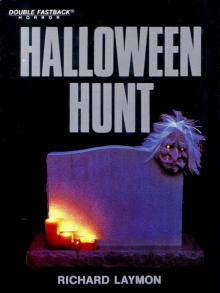 HALLOWEEN HUNT
HALLOWEEN HUNT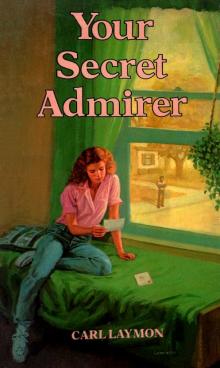 YOUR SECRET ADMIRER
YOUR SECRET ADMIRER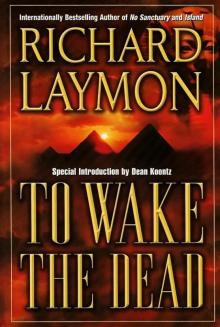 TO WAKE THE DEAD
TO WAKE THE DEAD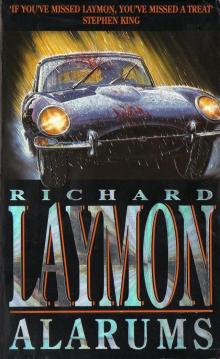 Alarums
Alarums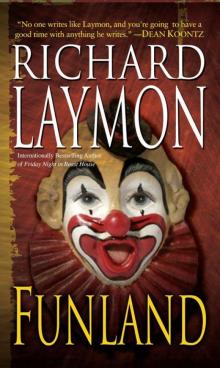 Funland
Funland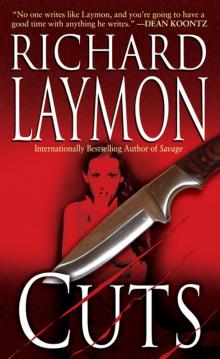 Cuts
Cuts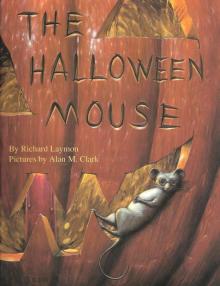 The Halloween Mouse
The Halloween Mouse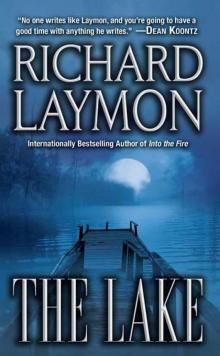 The Lake
The Lake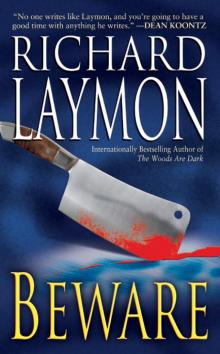 Beware
Beware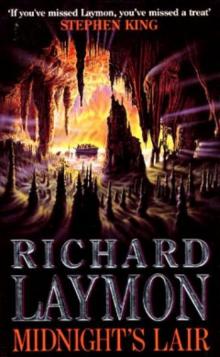 Midnight's Lair
Midnight's Lair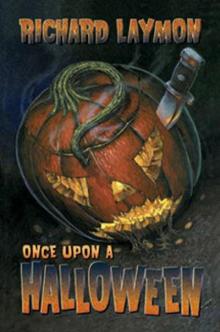 Once Upon a Halloween
Once Upon a Halloween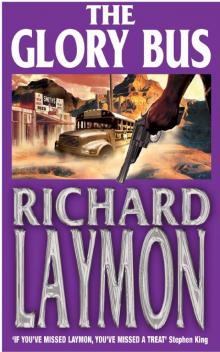 The Glory Bus
The Glory Bus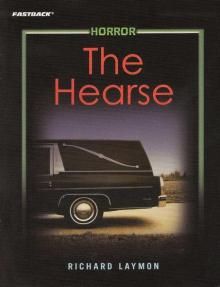 The Hearse
The Hearse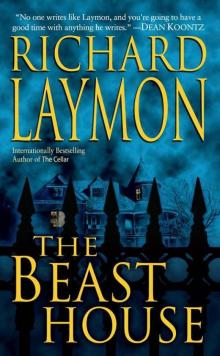 The Beast House
The Beast House Dreambox Junkies
Dreambox Junkies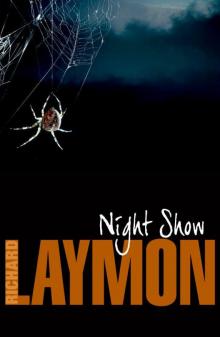 Night Show
Night Show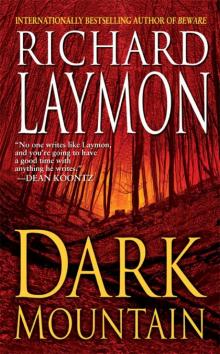 Dark Mountain
Dark Mountain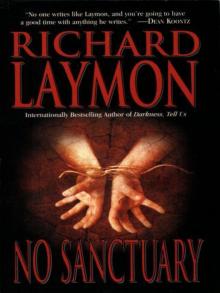 No Sanctuary
No Sanctuary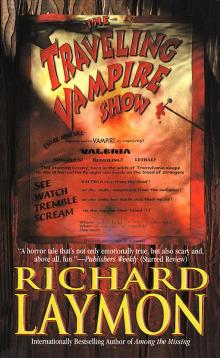 The Traveling Vampire Show
The Traveling Vampire Show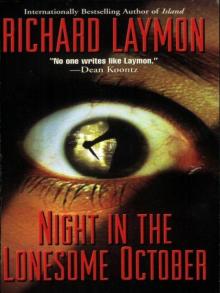 Night in the Lonesome October
Night in the Lonesome October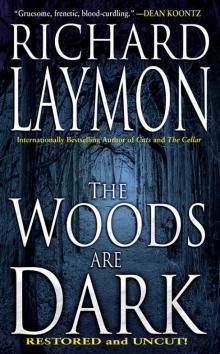 The Woods Are Dark
The Woods Are Dark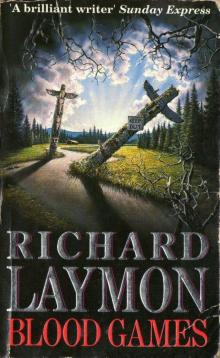 Blood Games
Blood Games Thin Air
Thin Air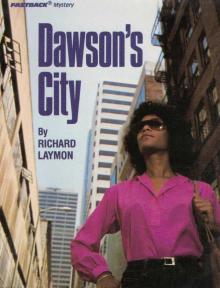 Dawson's City
Dawson's City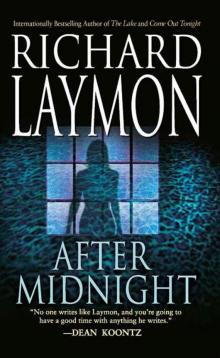 After Midnight
After Midnight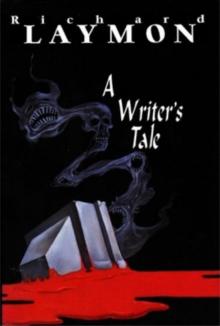 A Writer's Tale
A Writer's Tale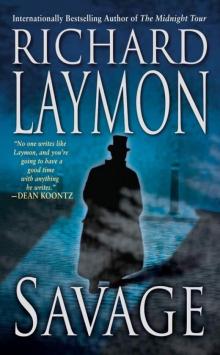 Savage
Savage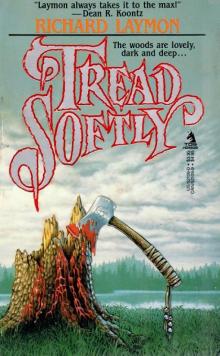 Tread Softly
Tread Softly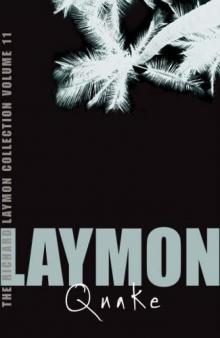 Quake
Quake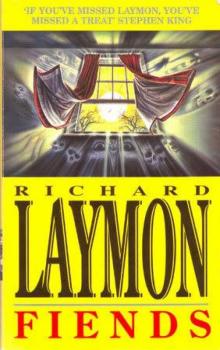 Fiends SSC
Fiends SSC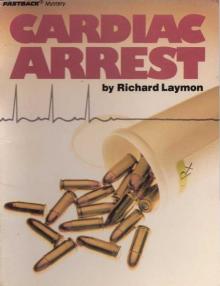 Cardiac Arrest
Cardiac Arrest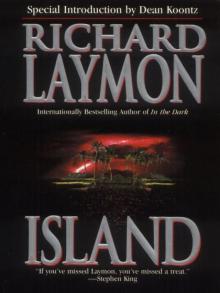 Island
Island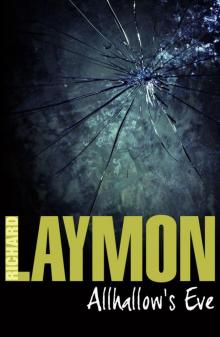 Allhallow's Eve: (Richard Laymon Horror Classic)
Allhallow's Eve: (Richard Laymon Horror Classic)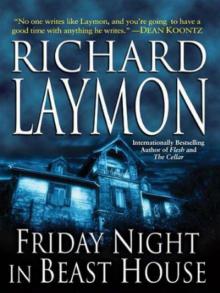 Friday Night in Beast House
Friday Night in Beast House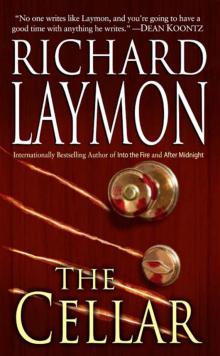 The Cellar
The Cellar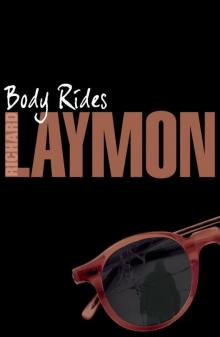 Body Rides
Body Rides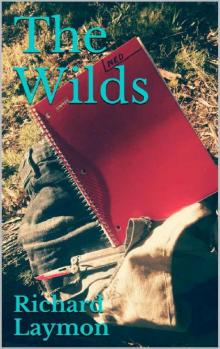 The Wilds
The Wilds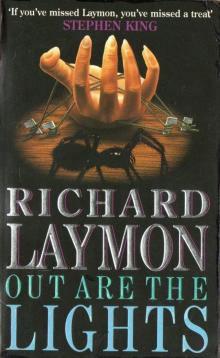 Out Are the Lights
Out Are the Lights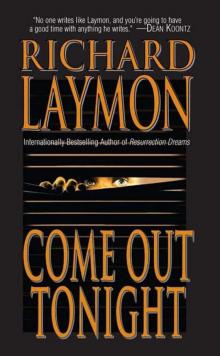 Come Out Tonight
Come Out Tonight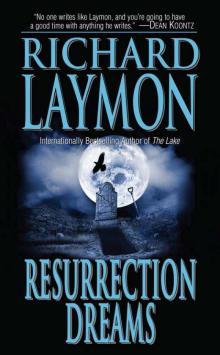 Resurrection Dreams
Resurrection Dreams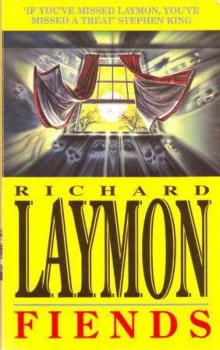 Fiends
Fiends The Cellar bhc-1
The Cellar bhc-1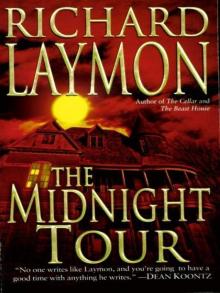 The Midnight Tour
The Midnight Tour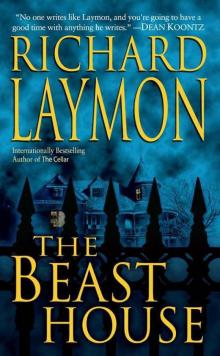 The Beast House bhc-2
The Beast House bhc-2 Endless Night
Endless Night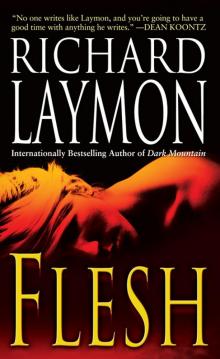 Flesh
Flesh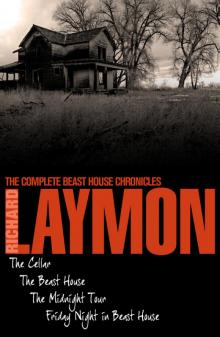 The Complete Beast House Chronicles
The Complete Beast House Chronicles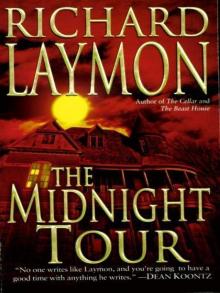 The Midnight Tour bhc-3
The Midnight Tour bhc-3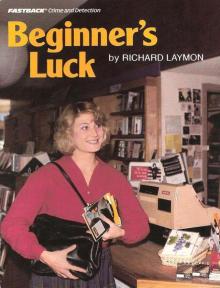 Beginner's Luck
Beginner's Luck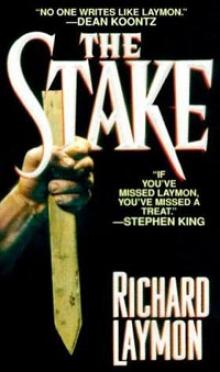 The Stake
The Stake